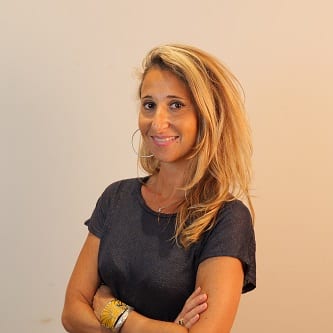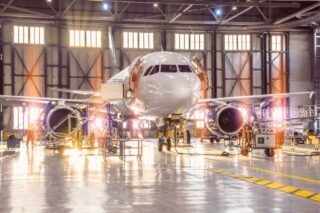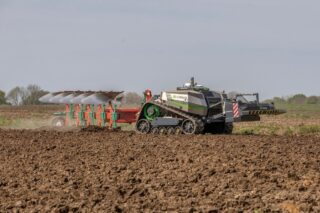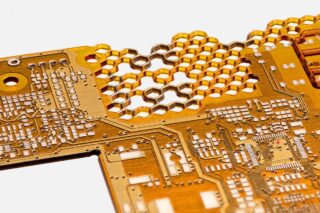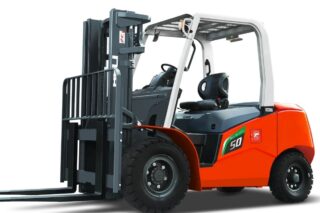The Engineering of Major Projects and Complex Systems Congress (IGPSC) was established in France (Arcachon) 18 years ago by Thierry Leveugle, former Director of Research and Development at Ariane Group. The main goal was to create a platform for engineers to exchange insights about the latest technologies developed or in development within the realms of engineering and scientific research. The Congress is now underway in Arcachon, situated in western France. DirectIndustry had the privilege of speaking with Florence Kersalé, an engineer and the current chairman of the event.
The IGPSC Congress starts today in Arcachon, France. Prior to the show, DirectIndustry spoke with the event’s president Florence Kersalé about what to expect from the event.

Could you introduce us to the IGPSC Congress?
Florence Kersalé: “The IGPSC Congress is an event that facilitates discussions among professionals from diverse sectors, including industry, academia, research, and even architecture and enrich collective knowledge. The Congress covers innovations in various domains such as space, energy, nuclear, transportation, and the development of complex structures like bridges and underground facilities. The event strives to enhance the manner in which engineering is practiced, making it more environmentally conscious. For us, it’s crucial to showcase that industrial projects are done for the well-being of both our planet and humanity.”

What will be the themes addressed this year?
Florence Kersalé: “The selection of themes is inspired by current affairs. This year’s lineup includes energy and its present and future sources (such as gas, hydrogen, etc.). Energy is undoubtedly a pressing issue for industries as they strive to progress and establish new factories and productions. This encompasses hydrogen advancements, progress in mini nuclear reactors, and the ongoing efforts of industries. We aim to provide an overview of ongoing research and projects, including the ITER project that is poised to harness fusion for energy production. This way, participants get to explore sectors facing similar challenges, fostering progress through this interchangeability. Water management, CO2 capture, and recycling are among the other topics that will be showcased. We will also delve into the pressing threats that currently affect businesses of all types. This includes the ever-evolving realm of cybersecurity, a domain where constant investment in technology and multifaceted initiatives is imperative due to ceaseless technological advancements. The space arena, although increasingly congested, remains a perpetual battleground for innovation – a sector intensified by players like Elon Musk’s SpaceX, turning satellite launch into an ultracompetitive field where historical achievements, such as those of Ariane, no longer offer an impenetrable shield.”

Who will participate in the event?
Florence Kersalé: “240 people have registered for the event. Among them are designers (engineers, constructors, maintainers), regulatory bodies (IRSN, ASN), and research organizations (CEA, CERN). The event also welcomes key industry players, including Airbus, EDF, VALEO, ORANO, ANDRA, ARIANE Group, and construction giants such as Bouygues, Vinci, and Eiffage.”

Can you give us examples of concrete innovations that will be presented?
Florence Kersalé: “This year, we will talk about AI and surrogate models. This is an AI that is trained to behave like a presented model, using numerous calculation examples from the original model. It serves as an emulator of the original model, providing rapid results for pre-sizing, risk reduction, what-if scenarios, and searching for techno-economic optimization. This AI aids in quick initial studies, saving time and ensuring the right direction from the start. For example, imagine you want to build a factory on a piece of land. The AI optimizes instantly, considering factors like layout, volume, water collection, sunlight, and more. If you decide you want to increase production, the AI calculates the additional requirements for pumps, power, and more, providing a cost estimation based on prior experience. This ensures clarity and efficiency from the outset, avoiding months of planning only to realize the project isn’t feasible due to constraints.”

Can you give us examples of previous impactful exchanges?
Florence Kersalé: Last year, a significant focus was on mini nuclear reactors, as numerous startups worked towards developing compact nuclear reactors. These reactors offer the advantage of enabling industries to establish their independent production units adjacent to their facilities, reducing reliance on EDF-supplied electricity. These discussions garnered particular interest from various sectors, with aerospace and metallurgy being notable examples. Metallurgy, given its energy-intensive nature requiring furnaces to reach temperatures of up to 1200 degrees Celsius, found these reactors particularly appealing due to their potential energy efficiency. The development of these mini reactors was presented in three distinct contexts, highlighting the progress of different developers. This provided valuable insights into the advancements made so far. However, full implementation of these reactors is still pending regulatory approvals, as waste monitoring procedures and management remain crucial aspects. Industry has also made considerable strides in environmental stewardship. Numerous companies have demonstrated their commitment by signing an environmental charter, reflecting their dedication to sustainable practices.”

I heard there will be demonstrations of autonomous vehicles on the streets of Arcachon.
Florence Kersalé: “In this year’s event, an exciting lineup of autonomous vehicle demonstrators awaits attendees. These demonstrations are a collaborative effort by our partners, VALEO, and the startup TwinswHeel, who are trailblazers in urban robotic logistics. Four autonomous goods transport droids, including one showcased in front of the congress center, will illustrate innovative logistics solutions. These advancements aim to bring sustainable transformation to delivery modes and offer modern, environmentally friendly, and economically viable solutions to communities. These droids not only serve as an alternative to traditional delivery methods but also provide valuable assistance to humans in various logistics tasks.”

